By Ben Friedman for The Connecticut Forum
The Connecticut Forum kicked off its 2021 season with Historians: A Conversation about Social Change and Citizenship, featuring panelists Jill Lepore and Jelani Cobb and moderated by Forum veteran John Dankosky. Sandwiched between an unprecedented breach of U.S. Capitol grounds and a historic presidential inauguration, this Forum promised to be one of the most topical yet. Add in a global pandemic, and you could be sure these panelists would never run out of things to talk about.
For Lepore and Cobb, history is alive and not only helps us understand the present, but also informs how we act and react in the “now.”
The historic nature of the present moment actually served to highlight how both Lepore and Cobb think about history in general. For these panelists, history isn’t just “the past.” Historical events aren’t just episodes of the past that we can watch and commentate on. They also aren’t just stepping stones that lead us neatly to our present moment. For Lepore and Cobb, history is alive and not only helps us understand the present, but also informs how we act and react in the “now.”
The best way to see what exactly this way of thinking means is to take a look at how these panelists answered questions throughout the night.
While the questions raised by both Dankosky and viewers at home often dealt with specific events or challenges of our present moment, Lepore and Cobb responded by first generalizing the question and then turning an eye to the past. Early in the program, the issue of history not being a “predictive science” was brought up. Dankosky asked Lepore why, although she stresses history is not a predictive science, she thought many historians may not have been shocked by the storming of the capitol building.
Lepore answered by explaining that it’s not that historians could have predicted the capitol riots, but that historians who study certain topics would be aware of a particular historical force in American politics. She went on to describe how, following the Cold War, conservative leaders worked to replace the foreign political enemy of communism with a domestic one: liberalism or progressivism. Lepore stressed how this demonization of liberalism “could have gone a thousand different ways at a thousand different moments,” but, ultimately, made recent events less shocking for those aware of it.
For these historians, even “hope” – a feeling that motivates us to press toward the future – is spurred on by the past.
Lepore’s answer sheds light on how historians such as herself think about history as something alive that manifests in the present in unpredictable ways. Dankosky’s closing question for our panelists – “What is giving you hope right now?” – was also met with a look to the past. Jelani Cobb summed up his answer in one word: history. The robust optimism with which the activists and leaders of the past lived helps him live with hope in the present. Lepore also answered by linking the past and present through a poignant story of generational progress. For these historians, even “hope” – a feeling that motivates us to press toward the future – is spurred on by the past.
The Historians Forum itself was a perfect opportunity to adopt this way of thinking in our own lives. Since this was a virtual Forum, the moderator and panelists were each set up in their own location, whether that be a public library or a home office. Likewise – as we saw on Twitter and Instagram – our viewers had arranged all sorts of unique watch parties at home. It’s no exaggeration to say that this was a historic Forum. We can all look back on the unique presentation of the Forum (and the unique ways we watched it), and carry that history with us into the future.
Maybe looking back on this Forum will cause us to attend future Bushnell events with a new perspective. Maybe experiencing this Forum will lead to us viewing this pandemic as an example of how we as a community innovated and overcame a unique challenge. Maybe this Forum will become part of this historic moment in our eyes.
Ben Friedman is a freelance writer and longtime CT Forum attendee who is passionate about uncovering compelling stories and sharing them with others. Connect with him and see what he’s writing next on LinkedIn.






 View All Sponsors ›
View All Sponsors ›
